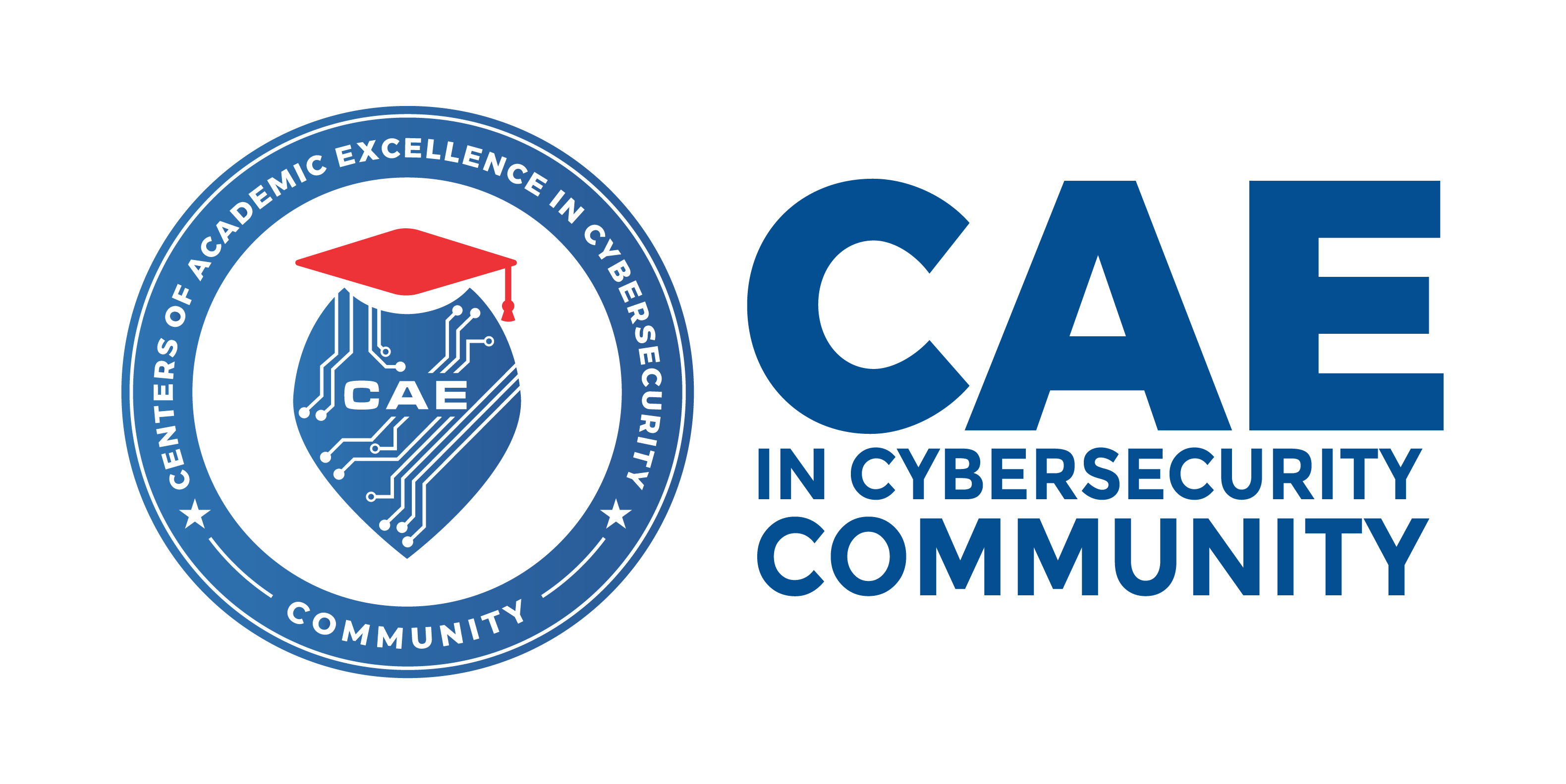
WHAT IS A CAE-C?
“Empowering tomorrow’s cyber workforce through excellence in education, collaboration, and innovation.”

What is a Center of Academic Excellence in Cybersecurity (CAE-C)?
Institutions that receive a CAE-C designation have met the rigorous requirements set forth by the sponsor of the program, the National Security Agency (NSA). The NSA awards CAE-C designations to institutions that commit to producing cybersecurity professionals that will reduce vulnerabilities in our national infrastructure.
There are three types of designations schools can pursue: Center of Academic Excellence in Cyber Defense (CAE-CD), Center of Academic Excellence in Cyber Research (CAE-R), and Center of Academic Excellence in Cyber Operations (CAE-CO). While the NSA does not provide funding to CAE-C designated institutions, once a school obtains one of these designations, it can compete for grants like the Department of Defense Cyber Service Academy (DoD CSA) and can apply for the National Science Foundation’s (NSF) Scholarship for Service program. Schools are not limited to a single designation and are encouraged to pursue more than one.
All regionally accredited two-year, four-year, and graduate-level institutions in the United States are eligible to apply to become a CAE-C designated institution. An institution or program must apply for re-designation every five academic years.
What are the Different CAE-C Designation Types?

The Center of Academic Excellence in Cyber Defense (CAE-CD) designation indicates that your institution is helping reduce threats to our national infrastructure by promoting higher education and research in cyber defense as well as provide the nation with a pipeline of qualified cybersecurity professionals. All regionally accredited two-year, four-year, and graduate-level institutions in the United States are eligible to apply to become a CAE-CD designated institution. To maintain the CAE-CD designation, an institution or program must apply to be re-evaluated every five academic years.

The Center of Academic Excellence in Cyber Operations (CAE-CO) program is in support of the President's National Initiative for Cybersecurity Education (NICE): Building a Digital Nation. It furthers the goal to broaden the pool of skilled workers capable of supporting a cyber-secure nation. The CAE-CO program is a deeply technical, inter-disciplinary, higher education program with a particular emphasis on technologies and techniques related to specialized cyber operations (e.g., collection, exploitation, and response), critical to intelligence, military, and law enforcement organizations authorized to perform these specialized operations. CAE-CO programs are within a degree path like computer science, electrical engineering or computer engineering department, or a degree program of equivalent technical depth, or a collaboration between two or more of these departments.

The Center of Academic Excellence in Cyber Research (CAE-R) designation indicates that your institution increases the understanding of robust cyber defense technology, policy, and practices that will enable our Nation to prevent and respond to a catastrophic event. Eligible institutions must be a DoD school, a Ph.D. producing military academy, or a regionally accredited Ph.D. degree-granting college or university. Institutions must identify as a Doctoral University – Highest Research Activity (R1), Doctoral University – Higher Research Activity (R2), or Doctoral University – Moderate Research Activity (R3) as determined by the Carnegie Foundation Basic Classification system (and/or other independent body to measure CD) or provide a written justification as to significant CD research. An institution or program must apply for re-designation every five academic years.
How Does My Institution Become a CAE-C?
For your institution to become a CAE-C, your organization needs to first contact the NCAE-C Program Management Office with your intention to apply for the designation. Once this information is received, you will be encouraged to fill out the National CAE in Cybersecurity Program Applicant Checklist. Once this information is collected, you enter into the mentor/reviewer program housed by the CAE Candidates Program National Center located at Whatcom Community College. This process will take several months to complete. Upon successful completion of the program, your institution becomes designated as a Center of Academic Excellence in Cybersecurity.
How Do I Contact the NCAE-C Program Management Office?
Email the PMO at caepmo_uwe@uwe.nsa.gov
